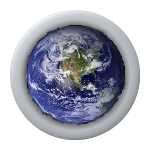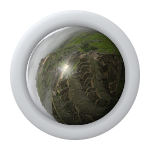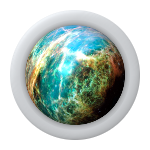





Societies And Systems
|
The evolution of society, from the biblical times of Egyptian pharaohs, the ten commandments, Greek gods of statue and the birth of democracy, to our society today has been a war torn trip. Lives have been lost fighting evil in society. Heroes triumphed and fought for our rights. From William Wilberforce to Nelson Mandela, from slavery to freedom, our society is changing. Society is evolving, not us.
Battles have been fought both physically and intellectually, over countless divergent views as to how our society should be run. Only the fairest systems survived. War has been used to shape society, bombs have been dropped to protect it. Legends have been crucified and burnt for it. People have fought for the society we have now, and itís the people who have changed it. Today it is ordered and fair. Our rights are protected and our freedom has been gained.
Today we have four important systems controlling society as we know it, embracing all the institutions that make our world work the way it does. They form the core of our society and represent all aspects of its physical form. They are:
 |
| The core systems of society |
Governmentís responsibility is to lead. Our political system allows us to vote through a ballot system for people who sit in government and represent us and who are responsible for our own nation. They negotiate on our behalf with foreign nations, decide matters of war and peace. They are the ones we turn to in times of disaster and to guide our future. Government is populated by politicians who sit in parliament and their duties are performed by them in terms of rules of behaviour, laws, precedents and constitutional agreements.
The justice system is responsible for upholding our rights. It defends our freedom, but demands our respect. It is there to resolve disputes amongst us and to protect us from manís own evil. It protects society from the systems society has created. It consists of court houses and jails. It is administered by judges, lawyers and policemen. Its powers are supreme and its decisions over-ride all other systems. It operates within a legal system in terms of the laws of the nation and its own precedent.
The economic system is responsible for our maintenance. It provides the food we eat, the place in which we live, everything we need to survive. It is responsible for distributing the resources of the world. It dictates who lives where and who gets what. Its rules are upheld by the justice system. It funds all the other systems either through taxes, or by virtue of the free market. It consists of banks and factories, farms and stock exchanges. It is measured in terms of a resource called money.
The information system is responsible for storing the knowledge man has collected, and for delivering that knowledge to the people in society. The system consists of the media, social networks, books and libraries. It is responsible for observing and reporting the activities of all the other systems. It is the system that prevents corruption. Its independence is paramount in a democratic society. It is run by reporters and researchers and librarians and historians. It constitutes communication.
Political idealisms such as communism are attempts to control all the systems under one super system. Experience has shown that this is not possible, and that the best approach is to have separation of powers. Each system should be independent of the other. To a large degree many countries have done this, but inevitably, the responsibilities merge.
Each system has developed a set of rules, its constitution, to define how those rules should work. Freedom of speech and the rules governing that freedom were shaped through successive political revolutions. Democratic government, and the political systems that were its predecessors, grew from ideas that are probably older than writing. They all evolved as systems many thousands of years old, and will continue to do so in the future.
| Society Lost |
The focus of this idea is the economic system, and in particular the system that has evolved the mostĖ capitalism. There are essentially two components to capitalism -the free market and the currency system supporting it. I believe the free market is the best possible mechanism for distributing wealth fairly. It is based on mathematical principles, it has an invisible hand.
A currency system complements the free market. It provides the means to trade, to give everything a price. A currency system is an institution just like any other institution. The currency system is the system that is responsible for the currency itself, not how it gets distributed by the free market. It adds the money to the free market. It also has the responsibility of maintaining the value of the currency, of storing wealth.
Throughout history we have had many different forms of currency systems. The term salary comes from salt, and at some point salt was rare in the Roman Empire. Silver has been used as a backing for currency, and in the past the value of the coin itself was sufficient to maintain its value. A gold coin, a Kruger Rand. Today our money has no intrinsic value, its value is relative.
The gold standard was a system that backed up money with gold. The reserve bank had the responsibility of storing the gold that the currency represented. Each note represented a fixed amount of gold. The USA set the price of 1 ounce of gold at $35, and it stayed that price until the gold standard was dropped with what is known as the Nixon shock.
Today our currency system is called the FIAT system, and it is probably the first currency system in the history of man to be based on nothing, it has no intrinsic value. Since the gold standard was dropped the price of gold today has inflated to over 1700$. A FIAT currency system demands growth, and it demands interest. Interest becomes inflation.
Our money is simply printed. The system works because of laws that govern how much and how this money is created and inserted into our economies. If the rules are broken then a country runs the risk of hyper-inflation. Zimbabwe is the best example, and close to home. There have been many others. Usually a reserve bank can manage the flow of money into the economy by adjusting interest rates, however even this mechanism is failing to remedy todayís economic problems.
What I have described is what is called the FIAT currency system, and most countries function on this system today. It is unique in that the currency itself is not backed up with anything. Before it a currency was usually backed up with a rare metal. The banknote itself claimed to be redeemable at the reserve bank for a given weight of metal. The fact that the currency today is not backed up by anything tangible, is the root cause for most of the financial difficulties over the last few decades.
The lack of intrinsic value is why we see the free market failing. Its independence from politics is reducing. The reason why the free market is failing is not due to a problem with the free market, but rather the currency system that supports it. The quality of the currency system will determine the quality of the free market. The free market cannot function stably on an unstable currency. The currency forms the foundation of the free market. The question is what defines a good currency system?
The job of the currency system is to support the free market. A good currency system stimulates the free market to function well. The ideal situation for the free market is that everyone has enough wealth to participate in the free market as consumers. If everyone has strong purchasing power, then the free market will flourish.
If the currency system constitutes the foundation of the free market it follows that a good currency system is an imperative to free market stimulation. The ideal situation for the free market is that everyone has enough wealth to participate in the free market as consumers. If everyone has strong purchasing power, then the free market will flourish.
